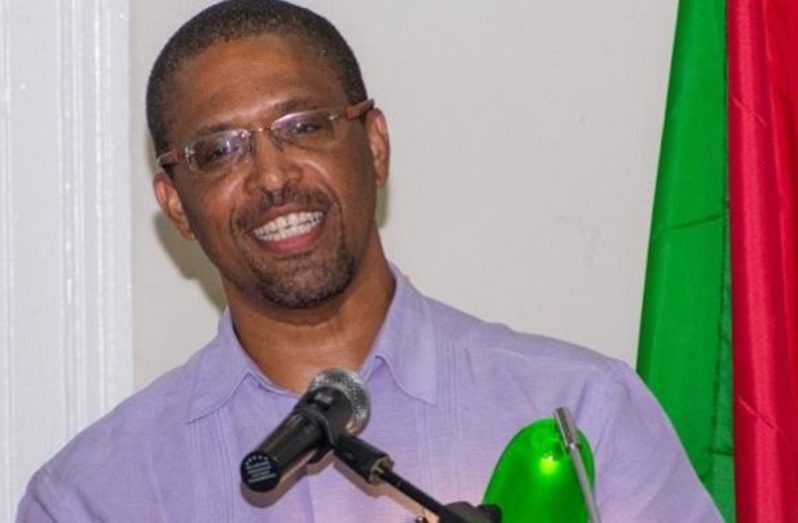BUSINESSMAN Terrence Campbell, who is set to lead A Partnership for National Unity (APNU) in the next Parliament, has launched a scathing critique of the We Invest in Nationhood (WIN) party, accusing its Region 10 (Upper Demerara-Berbice) candidate, Mark Goring, of arrogance and unpopularity.
In a video posted to his personal social media page and later shared on APNU’s official account, Campbell claimed that the WIN party has not been transparent with the public about internal challenges, particularly regarding Goring’s standing within the party.
According to Campbell, Goring is “a deeply unpopular and arrogant candidate, unpopular even amongst WIN councillors.”
His remarks follow a failed attempt between APNU and WIN to form a political alliance ahead of the upcoming parliamentary session, a move that had been widely speculated as part of broader opposition efforts to consolidate support.
He said: “Now it is rich for anyone to come and say that in the absence of an agreement, the APNU must not push its candidates to the highest offices in the region. That is what we did, and that is what we have a right to do, and that’s what our supporters expect us to do in the absence of an agreement. Now our candidate wasn’t successful in Region Four, but our candidate in Region 10 did a lot better.”
Campbell’s comments come in light after a quiet attempt to forge a deal to secure chairmanship of key Regional Democratic Councils (RDCs) ended in a public spat and blame game between the APNU and WIN.
The turmoil within the opposition camp has laid bare deep fractures, with WIN leader and US-sanctioned businessman Azruddin Mohamed accusing APNU of colluding to block his party from power.
However, Mohamed’s party executive, Tabitha Sarabo-Halley, contradicted his sentiments by confirming that WIN was secretly engaging APNU ahead of the elections of regional chairpersons and vice-chairpersons.
Frustrated and shocked by the stalemate in Region 10, Mohamed said: “Right now its 9-9 and clearly you can see that the PPP, the APNU and the FGM, they all voted together and WIN voted separated because with their nine, its five from the APNU, the three from PPP, and one from FGM, I don’t know why all of these parties are trying to work together to get WIN out.”
Sarabo-Halley, in an invited comment after the election in Region Four, where the PPP/C secured both chairmanship and vice chairmanship, however, admitted that WIN initially intended to support the APNU for chairmanship in exchange for vice-chairmanship.
She told reporters: “Our initial decision, I’ll be quite frank with you, there were discussions with the APNU, and our original decision was to come in and support the APNU for the position of chairmanship, and that, hopefully, they will support us for the position of vice-chair. That was the original intention.”
Further, she confirmed that the WIN party did not hold any talks with the governing PPP/C. Sarabo-Halley said WIN was “prepared to work with APNU because it has the second highest votes in the region combined, hopefully with FGM to maintain their hold in Region Four at the RDC level.”
In a statement, APNU, however, said it “moved forward independently” after WIN allegedly sought to sideline the coalition from several key regional seats.
According to the release, “discussions held with the We Invest in Nationhood (WIN) Party regarding a potential agreement ahead of today’s elections for Regional Chairs and Vice-Chairs did not result in any agreement. In fact, it manifested that WIN was prepared to exclude APNU from Chairmanship and Vice Chairmanship in many Regions.”
APNU insisted it made “genuine efforts to arrive at a co-operative framework that would reflect the aspirations of our shared constituents,” but said that “the parties were unable to finalise an understanding before the elections.”
With the deal now dead, APNU moved swiftly to field its own slate of candidates, signalling a clear break from WIN’s strategy.



.jpg)








